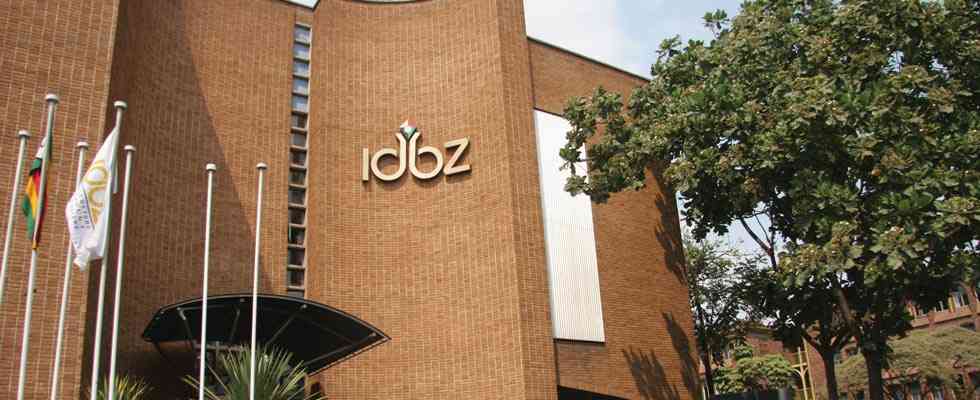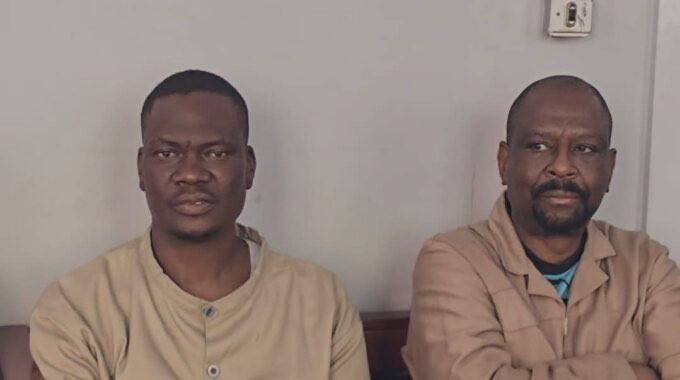
It is shocking that a senior executive of a major state bank could manipulate and loot public funds at the scale exposed in this edition. This is not the work of one rogue employee who slipped through the cracks. It is a reflection of systemic rot at the Infrastructure Development Bank of Zimbabwe (IDBZ).
Several questions arise. What controls exist at this strategic development finance institution mandated to deliver public good? What due diligence was applied when executives like Suckson Makwasha Muskwe, now on the run, were recruited and entrusted with millions of United States dollars to champion the cause of Zimbabwean students?
A scandal of this magnitude does not happen overnight. It is a carefully-crafted criminal strategy that evolves over years. Where was IDBZ’s internal audit when public funds were siphoned off? Who are the auditors, and what qualifies them to safeguard assets of this scale?
We have consistently exposed how unqualified executives have been parachuted into state banks and agencies requiring technical acumen and proven professionalism. The response has been predictable. We have been accused of seeking to destabilise public institutions or driven by political agendas. We have also been accused of taking money to prop up the agendas of private individuals. Yet here we are — with millions vanishing while the nation bleeds from a housing crisis.
If this scandal was picked up internally, why did it take so long for IDBZ to act? At best, this reflects gross negligence. At worst, it suggests complicity. A thorough police investigation is needed to unearth details that could be even more shocking than those already in the public domain.
At this point, IDBZ’s leadership has failed. They must resign or be fired. Before that, a forensic audit is non-negotiable. It must probe not just the Bulawayo project but also every other scheme the bank has run — from student housing allocations to land development. Are beneficiaries genuine, or have units been quietly diverted to relatives and cronies? Such patterns have been seen across virtually every state-linked project.
The facts already on record are damning. Muskwe, once grilled by CID over allegations of siphoning millions, is now on the run. Police confirmed he is being hunted down. Sources say as much as US$8 million may have been salted away. That figure alone could have funded nearly 300 low cost houses, sheltering over 1 500 Zimbabweans. Instead, the money is likely lining the pockets of a few individuals.
The project has become a symbol of looting.
- Cars up for grabs in batteries competition
- Africa should be better prepared for Europe’s security funding shift
- Sadc PF wants right to health enforceable
- AG’s report shows growing impunity at the heart of govt operation
Keep Reading
Parliament has not been silent. In 2021, legislators warned of lax controls and weak oversight in state lenders. Their warnings have now been confirmed in the most brutal way possible.
Investigators say Muskwe acquired at least 28 houses and flats across Harare, Bulawayo, Gwanda, and even South Africa. If confirmed, that portfolio alone demonstrates the scale of abuse. They also fear the funds have already been spirited offshore. Once money leaves Zimbabwe under the cover of shell companies, tracing it becomes almost impossible.
This makes the Muskwe scandal even more troubling. It suggests the IDBZ loot may have followed the same illicit channels repeatedly flagged by the Financial Intelligence Unit, underlining how entrenched corruption and weak supervision are draining state institutions.
Zimbabwe is facing a housing backlog of two million units. Every dollar lost to graft is a roof denied to a family. When institutions created to serve the public become instruments of plunder, accountability must be swift and uncompromising.
The IDBZ scandal is not just about one man. It is about leadership failure. Those who allowed this rot to fester - whether through negligence or design — must step down. If they do not, they must be fired. Anything less would be an insult to the millions of Zimbabweans still waiting for decent shelter.











